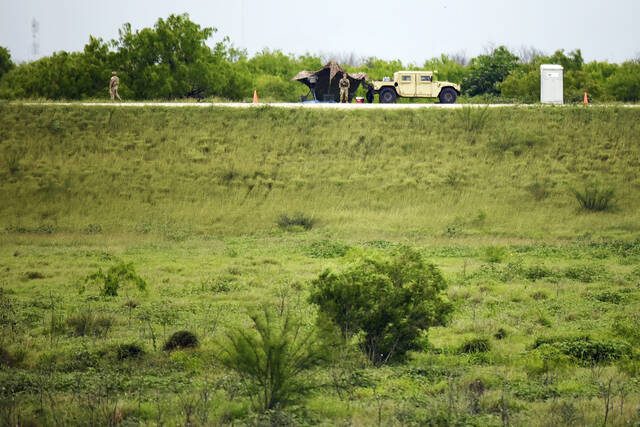In McALLEN, Texas, a series of legal actions over a Texas law allowing the state to detain and expel individuals who enter the U.S. unlawfully led to uncertainty at the border with Mexico on Wednesday, as sheriffs, police chiefs, and migrants awaited guidance.
Texas faced doubtful questioning during a hearing before a three-judge panel of the 5th U.S. Circuit Court of Appeals that concluded without a decision, leaving the new law temporarily suspended. The U.S. Supreme Court's decision to allow the law to be implemented for several hours on Tuesday was part of a rush of activity. Regardless of the ruling by the three-judge panel, the legal battle over Texas Republican Gov. Greg Abbott’s latest effort to deter illegal border crossings will continue.
Yolanis Campo, 42, journeyed from Colombia, crossed the Rio Grande, and entered the U.S. from Mexico with her 16-year-old daughter, suggested that other migrants take a different route due to the confusion surrounding Texas’ law. Border Patrol agents processed her and released her with an ankle bracelet to pursue her immigration case.
Campo, who was staying at a shelter in McAllen, stated, “It’s more complicated because (federal authorities) tell us we can move on, but this new rule, this new law complicates everything because it says we can’t move on.”
During Wednesday’s hearing, Chief Judge Priscilla Richman of the 5th Circuit expressed doubts about how the state law would be implemented, including how Texas would respond if federal authorities do not cooperate with a state judge’s order to deport someone. No arrests were reported while the law was in effect Tuesday.
The U.S. Department of Homeland Security stated that it would not have the authority to deport individuals under the state law.
Texas Solicitor General Aaron Nielson stated, “This is uncharted because we don’t have any cases on it.”
The Justice Department argued that Texas’ law clearly violates federal authority and would create disorder at the border.
The department’s lawyers faced intense questioning from Judge Andrew Oldham, who was appointed by Republican President Donald Trump. The third judge, Judge Irma Ramirez, an appointee of Democratic President Joe Biden, previously voted to keep the law suspended.
Richman, appointed by Republican President George W. Bush, challenged Texas’ claim that it is exercising a “core police power,” forcing Nielsen to admit that deporting individuals has traditionally been a federal responsibility. However, Nielsen denied that Texas is “trying to take over the field” on border enforcement and stated that the state wants to collaborate with the federal government to address the issue.
Nielsen also admitted that he did not know how the law would impact someone who entered the country illegally but came to Texas from another state.
The Republican lawmakers drafted the law so that it applies in all of the state’s 254 counties, although Steve McCraw, the director of the Texas Department of Public Safety, anticipates that it will mainly be enforced near the U.S.-Mexico border.



